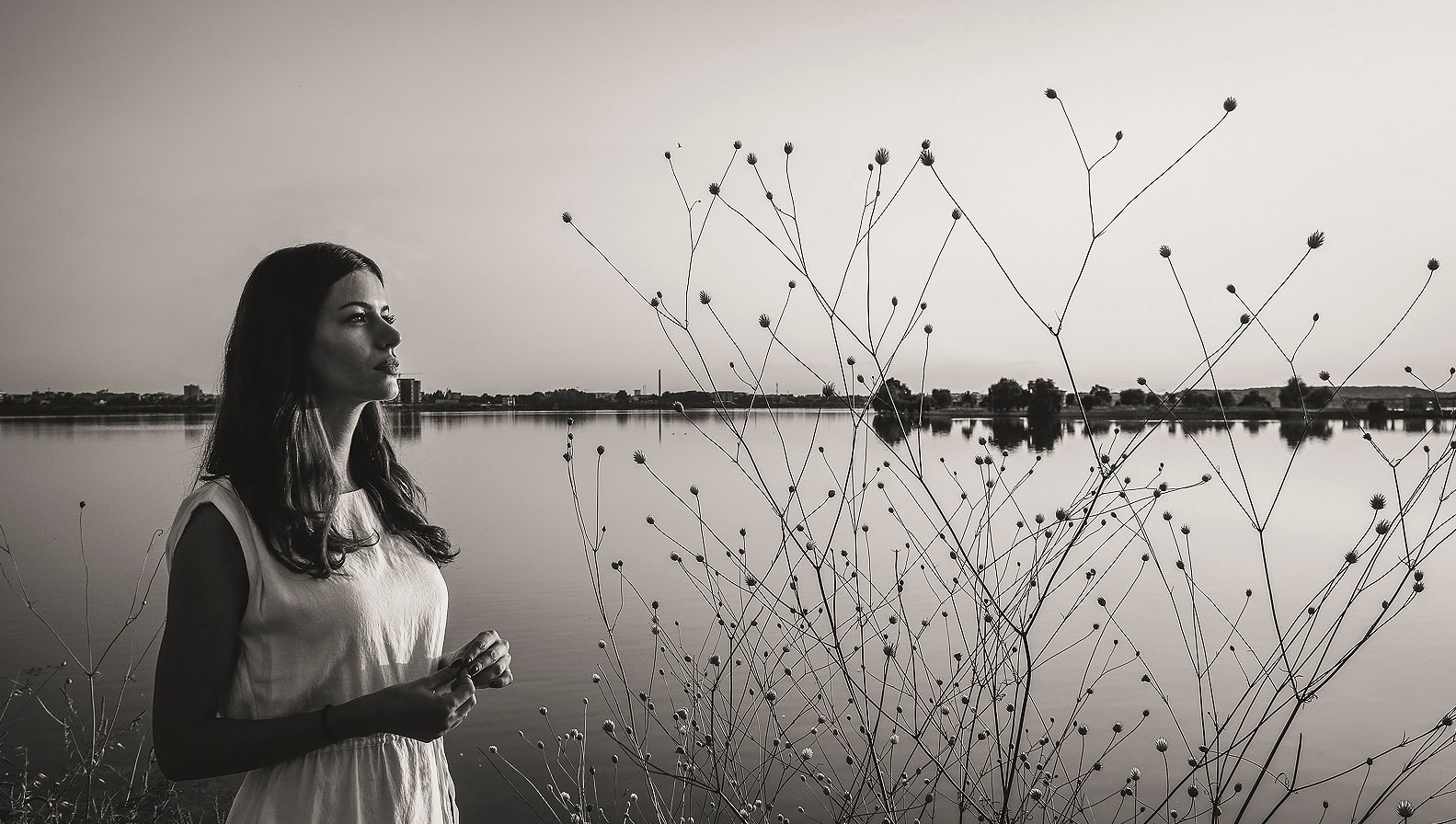
Elena Calistru
From: Focșani Born on: 10 February 1986 Occupation: President and Co-founder of Funky Citizens - NGOWe are in a Bird Cage (Colivia), I and Elena, and no, no one locked us there. You see, this cage is not an ordinary one but a nice home, the Funky Citizens’ non-governmental organization location, where in an office, separated by a door with large windows from the rest of the working people, we start our discussion, I and Elena.
We sat face to face and I proposed that we fill in together the profile of interviewee:
MS: Occupation … how to write it?
EC: It’s a good question … every time someone asks me I do not know what to answer. Activist? NGO founder? …
I think her words, though from the final of the interview, defines, most likely unintentionally, being asked on her own future plans, more than a profile: I know how I want to be when I will grow up, but not what. It’s just like occupation, I do not know what job I have, but I know what I am.
People who are comfortable with this lack of concrete, who do not feel the need to define themselves with a certain job title are rare and extremely interesting. They do not feel the need to match a standard tiny space and do well because they do not limit their own area of action.
Someone told me at some point that, us, people are going away with the disability to really believe our own thoughts. We rarely put question marks at their end, but we are very good at deepening them and turning into our own reality. I realized that I came to the right person when I heard Elena pronounce the following words: Standing in the Bird Cage there is the risk of reaching a group thinking, imagining the world, its problems and needs in a very personal way, and then we need some discussions and meetings where you can either validate your ideas or either have the coldest shower of the year. All of these interactions give you a kind of humility, and it shows that it is fundamental to listen what other people say, or to see how they deal with problems and implement concepts.
I asked her at some point what it is like to be a voice because she exposes and shouts some public collective dissatisfaction. I’m a bit afraid of that, because you’re used to people who likes you, and then you tend to be somehow more temperate. So, unconsciously you try to gather as many people as possible that shares the same opinion. I can say I have almost a program to annoy people, provoking them to debate. I have moments in which I say the thinks as they really are.
Elena wants the things she does with her team to be part of a bigger story than Romania, so she started the collaboration with other organizations in Central and Eastern Europe, for example with Poland and Hungary. It’s dangerous not to have the big picture. I admit that it is also a personal fear, the danger of wasting you into everyday activities that subtly leads you to failure, especially at a brilliant failure. Do you realize how dangerous it is? You do not even see it.
And because I’ve come to what and how you see, I threw my curiosity on the table and asked how she sees love. She smiled and answered me. I believe in partnership and in stable love very much. I imagine love as the relationship between a supporter and the favourite team. He goes after that team anywhere, and even if the players are wrong and he’s screaming, telling it all sorts of things, he’s upset, but in the end he’s still with it.

MS: Did you recently attend TedX Alba Iulia, reason why I wonder how you feel on stage?
I do not have a problem with the scene. I try not to think about emotions and I’m focusing on the audience. I like to feel the audience and somehow adapt my style according to it, because the energy people offers and the interaction with them is very important to me. And then, I step on the stage with the message I want to be offered and match along the way. Not always is a success, but that’s what I’m trying to obtain.
MS: Because ” not always is a success “, can you give me an example of a moment when you had to ask for more, but you did not?
I think my first job can be an example. Looking back, I find that I had to ask for more coaching. There I felt that I was thrown into the water and forced to learn to swim and survive alone. I would have liked that instead of covering a lot of missing information, I ask for guidance. It is useful even if the people tells you where to look or what steps to follow. In a way I find it a problem for a many people. At least around me, people feel the pressure to be better, better performing and do not realize that fix this aspect – to ask those next to you, to have more experience ones explaining some things to you does not mean you’re less capable, but simply that there is a need to burn faster some stages. Eventually you’re optimizing some processes.
MS: And the process of a business… how should it be looked in present? I through Funky Citizens and everything you’ve developed besides, represents a business because you manage to pay some people, right?
From my point of view, between a business and an NGO there are no fundamental differences. In the case of the first, you measure your performance based on the shares you give, the dividends you pay to the shareholders and the financial profit, while an NGO measures its profit in social impact. Otherwise we pay taxes just like any wage on salaries.
I think agility, the ability to adapt very quickly, as well as the assumption form beginning that everything will not be perfect, is important in business. We, in Funky Citizens, are doing this – we’re innovating pretty much, testing and breaking up hard, but we’re breaking up of projects that do not work. Either it is not their time, either they were badly thought out, or they were not properly adapted to reality. The reasons are different. But if you imagine that everything that results from your work is wonderful, it can be a big mistake. You need a fairly large space for experiment, test and eventual failure. I think at the beginning you can keep equal percentages: 50% of what you are sure of and 50% of experiments, after which you can increase the percentage of things that you know how to do well, but innovation must not fall below 20%. You can never know what you will discover.
MS: I know that you also interact with other countries from a civic and political point of view. What did you discover there and want to bring also to Romania?
Yes, we interacted. For example, a few months ago, I participated in a multi-regional project “Advancing and Sustaining Civic Engagement” in the US and I was delighted by the cities I visited during those days. I have seen how communities are mobilizing when something is wrong or they want to do something. There are groups of young people in schools who gather at each lunch break and plan different approaches, from petitions to support groups for the LGBT community. I would really like the spontaneous, uncontrolled, kind of organic actions of this kind to be part of our daily routine.
Then, I admired in Poland, and last year and this year, the women’s reaction to the subject of abortion. There is a whole debate there and last year a huge number of women came out on the street in a strike called “The black protest.” To manage, in a Catholic and profoundly conservative society such as the Polish one, to mobilize at such a proportion on a theme that is very, very concrete, which does not necessarily have the connection with flowers and the cute things, but with the assumption of difficult themes in any society, it’s fantastic.
I wish that the solidarity and the level of awareness visible in Poland to appear and manifest in Romania on the subject of violence against women. When I think each of us knows a case, but we prefer to treat the subject like poverty in Africa – something real, but far, it paralyzes me. As a society we must learn that embracing such difficult themes can only lead to good.
MS: But I’m thinking now that you are trying to educate some communities, but have you thought of creating them? For example, when you refer to domestic violence, you cannot identify 2 or 3 people who take over from you the initiatives? In this way, these people, will start and grow the community and its activity. I mean not to expect initiatives from different people but looking for people for initiatives and then handing them over?
Yes, that’s what we’ve been trying to do this lately. We have tried to discover various “issues” that hide in different places, and we initially covered much of the information through analyzes, budgets, etc., but lately we go to local groups and try to explain to them how to do all these things by themselves. We’re doing trainings. In the civic education area we apply the same principle.
I can help in the area where I am good, and though I am very sensitive to the issue of domestic violence, I will never be the leader in such an activity. But I enjoy the increasing desire to do something. So groups exist or are formed, but it is important to cover all of them because they also need follow-up and coaching to know what to do next with the information.
MS: If you look back retrospectively, what could Funky Citizens do better? Have you had any beginner mistakes?
Yeah, surely there were a lot of mistakes. First of all, you have to assume that some projects are not going, and we have invested a lot of energy and have kept some of them even if they were meant for failure.
Then, another situation where we were wrong and it would have been nice to know the fair ratio of those stable projects with its medium-long-time impact and breaking news. However, the fast reaction assumed by us helped us to build a community and the coverage we have comes largely from the prompt response. But it is good to balance yourself with stable projects as well.
Another aspect to consider is setting reasonable expectations to avoid burn-outs. So it’s important for you to find a balance at the team level between what you do at work and the rest of your life.
MS: How do you see the development of Funky Citizens? How are your plans for the future?
We have a strategy by 2020, we have tried to keep it and it was a success until now.
In the next period, we want to focus on the area of civic education, where from past years I have noticed that the need is huge. We would like to get to the smaller towns, high schools and schools not necessarily so good. As an organization, you tend to go to the sexiest areas, as Cluj or Iaşi, but life is beyond the big cities, because most of the people in this country live in the countryside and the small citys. So for Funky Citizens it is a challenge to be able to reach and prepare civic these areas.
On the same idea, we also want to address the people responsible for city administration in order to spend more efficiently the public money. I think there is a need for good local policy examples and not great national policies which do not reach the right level. In the end, the innovation we previously mentioned should be tested locally at first. We want to get a common language with these people in order to make clear for them the reasons why they receive questions, where they have wronged and how they can make good decisions in the future.
MS: I have read somewhere that although you are sometimes in disagreement with the philosophy outlined in the book The Atlas * Rebellion by author Rand Ayn, you admire the things thought and written by her. Where are these disagreements?
* In Atlas Revolt – the author describes his philosophical and political vision for a society in which state intervention should be minimal, individuals should be atheist and selfish, but ethical.
This woman has an impressive story. She is a Jewish woman who left the US Soviet Union for USA, and much of her writings relate to that time of the cold war when there were only black and white variants. But it is a philosophy that dates back to the era in which it had lived and the horrors it had passed through.
Here are the differences: I believe in the multitude of grey tones. And, no matter how painful it may be for history, people cannot function outside of the historical context in which they live. You cannot detach yourself completely from the context, and if you do it that means you have not had any input in society. Some things may be acceptable in some historical contexts, even if they seem horrible later on.
When I write my interviews, I am thinking first of all if the information provided keeps its usefulness at the passing of time, or if I manage to reproduce the emotion that I felt when I talk to the person, mirroring the character behind the words.
I wonder how much of what has been discussed will be the same in the next years. And here, at the last question, I want many of Elena’s wishes to become a visible reality, because she is a woman who wants good for a country that does not quite respect itself. Through the civic education she has in mind, as well as all the actions initiated by Funky Citizens, she will be able to change the world – so I heard at some point, some time ago, that Elena wants. Not only that she desires this, but she believes in her power to change the world, but even more grandiose, she believes in us, in everyone else, that we can change the world. I know that it is not enough for someone to believe in you and that you have to believe in yourself, but it can certainly be a beginning. A beginning for the extraordinary mobilizations she sees in other countries and wants for Romania.
If a historical context is not so easy to control, the actions of each of us are.






































